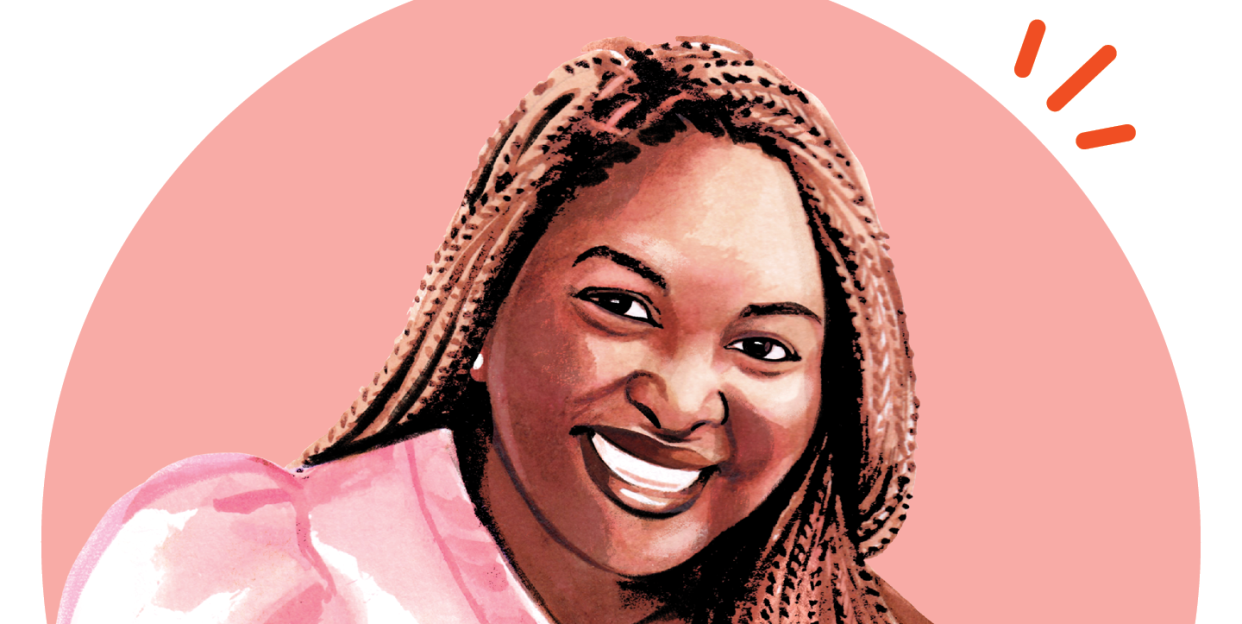Why Self-Care Isn't Just About 'Manicures And Massages' For Black Women

"Hearst Magazines and Yahoo may earn commission or revenue on some items through the links below."
Ten years ago, I was just starting my career, working as an editor at a major website. A dream for a budding journalist. Weekdays and weeknights were filled with exclusive events, celeb encounters, and New York City adventures. But I had another life. My late nights and weekends were spent as my mother’s caregiver.
My mom had rheumatoid arthritis and lost limb mobility. As I took care of her, I dealt with my own health issues. Months of ignoring heavy periods landed me in the doctor’s office, where I was diagnosed with anemia and polycystic ovary syndrome (PCOS). The doctor immediately put me on birth control and iron supplements. Finally, a plan.
Within a month, my period regulated and my symptoms decreased. I felt different. I felt hopeful. Treating my PCOS forced me to begin a path of prioritizing wellness, as well as reflecting on my mom’s and my own self-care habits.
For so long, racism and sexism (a.k.a. misogynoir) told Black women that we cannot sit down and rest, because we must work twice as hard to be respected and rewarded.
All my life, I watched my mom rarely put herself first.
Repeating this intergenerational traumatic pattern, I immersed myself in my career; it was my identity. And then, my mom died on December 31, 2013, which pushed my mortality into the forefront of my existence.
A few more years in the industry left me wondering: What am I doing here? I needed to build a life that centered my health—immediately. So, I resigned and began looking for peace and purpose.
In 2017, I decided to pursue a master’s degree in social work, looking to work in a field where I could have an impact on others and use my gift of active listening and nurturing. My graduate program, coupled with my new life as a social worker, allowed me to explore the needs of Black women.
I was shocked to read that the death rate for Black women from preventable diseases was always higher than for non-Black women. The sparse research on Black women’s health also revealed great disparities caused by a few factors, stress being the most common one.
Soon, I began to integrate practical self-care strategies into my life.
First, I started seeing a Black woman therapist; I needed to do inner-healing work with someone who looked like me and shared a similar life experience.
Additionally, I began paying more attention to the needs of my mind, body, and soul: going on walks to clear my head, journaling through anxious thoughts, processing microaggressive encounters with friends, saying no to things that didn’t align with me, and eating foods my body liked. (I went plant-based—yes, I live in L.A.)
For Black women, self-care isn’t just manicures and massages—though it can include them. It is about activities that aid our self-preservation in a world that is structured to oppress us. It is preventive care.
As I experienced a well-being shift in tandem with my intentional self-care, I realized that the way I combat stress could help save lives. Thus, my book: Self-Care for Black Women. Now, part of my job as a social worker is to encourage people to take tiny steps toward elevating their wellness, their greatest form of resistance. Explore what practices work for you and embrace them.
Oludara Adeeyo is a psychiatric social worker and author of Self-Care for Black Women. This article originally appeared in the July/August issue of Women's Health, on newsstands now.
You Might Also Like

